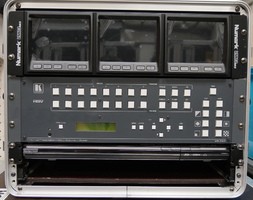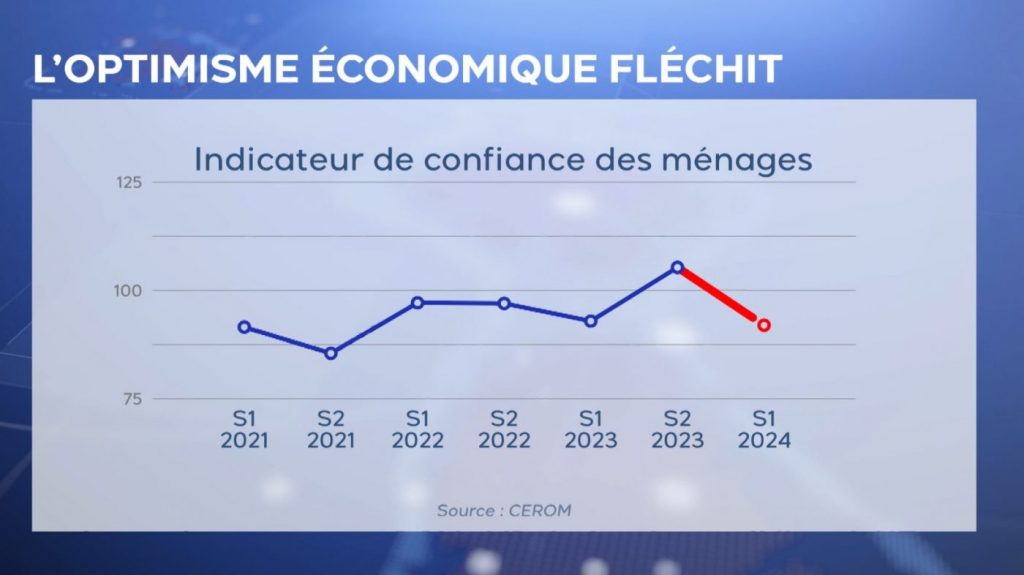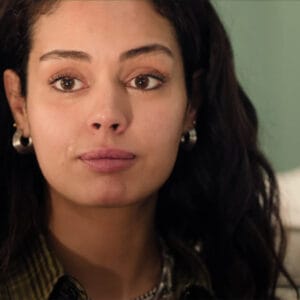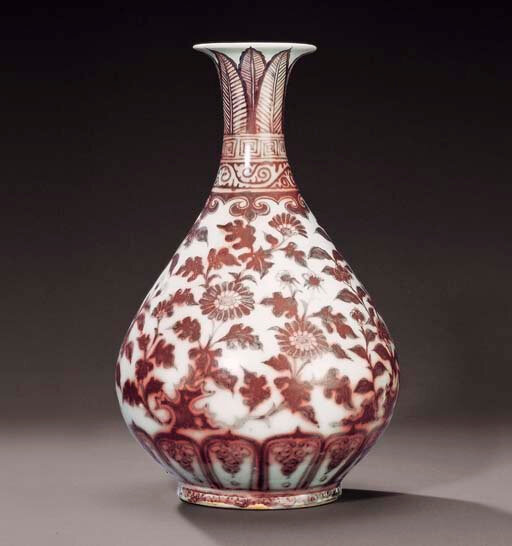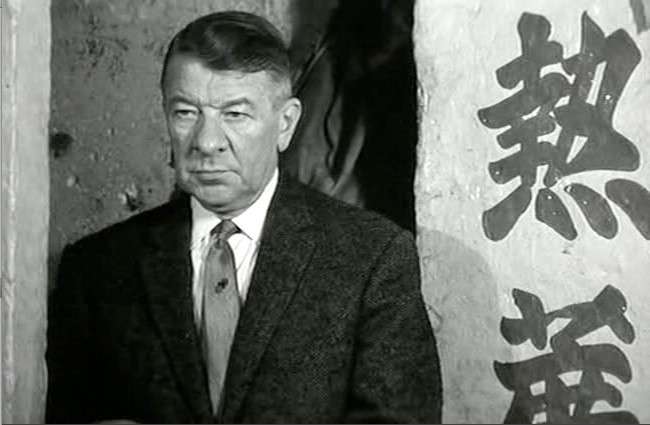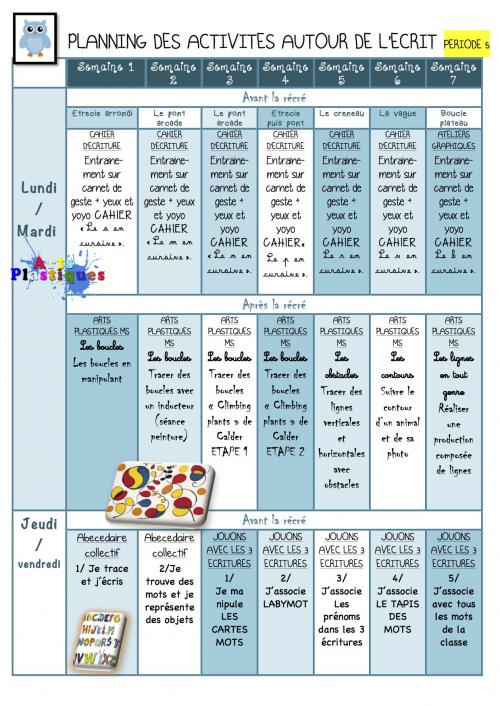Last Wednesday I gave a presentation at <a href="https://www.zylstra.org/blog/2023/06/career-day/" rel="nofollow ugc">the ‘career-day’ of the Master program philosophy of science, technology and society</a> (PSTS), where I studied two decades ago. This is a transcript with some adaptations.
I titled my talk:
"<em>What is it you do, again?</em>"
It’s a question I often got and get asked in my work, as well as what I remember PSTS students being asked a lot. There’s a certain ambiguity to being active at the crossroads of technology and the consequences of using technology. There’s a lot of nuance and context involved, which lends itself less wel to clear labeling.
I keep a list titled ‘<em>I’m a what now?</em>’ of things people thought I was, or at least the label they used that best fit their perception of what I was doing for them. It runs from lawyer to politician, from professor to author and researcher, from historian to data-psychologist and jukebox (ask a question and out come a lot of stories).
To give you a more direct overview, listing current roles and activities is the easiest route. I’m a cofounder of <a href="https://thegreenland.eu" rel="nofollow ugc">The Green Land</a>, a consultancy on open data, data governance, and digital ethics. We’re 11 people, and almost always work for public sector clients, mostly here in the Netherlands as well as for and elsewhere in the EU.
The two projects I’m currently spending most of my time on are:
being the lead for the interprovincial digital ethics program, and the secretary to the recently launched interprovincial ethics committee, both to support them organisationally as well as w.r.t. subject matter expertise.
And I have a similar role for the Dutch government tactical council on the EU data strategy. There I help government data holders (CBS, Cadastre, etc) with implementing the current wave of EU digital and data legislation which are in part values based. A few years ago I helped write part of that legislation and now I help implement the consequences of that.
Since a number of years I also work for the World Bank on occasion, usually in non-EU eastern Europe and Central Asia, former Soviet Union states. Focus there is how to use data to jump over development issues, and creating national data action plans. Next to my work I am the Chair of the Open State Foundation, focused on Dutch government transparency, which came out of an event I helped organise in 2008. And I’m on the board of the association that promotes and safeguards the Creative Commons licenses in the Netherlands.
My twisting path
The organisers asked me to talk about my career path after PSTS.
If you look at profiles on LinkedIn or in any CV you easily get the impression of a lineair logical path. The reality is a much more evolutionary path, that twists and turns, from some point to one adjacent possible and from there to the next one.
<a href="https://www.flickr.com/photos/tonz/52849988531/in/datetaken/" rel="nofollow ugc"></a>
A few weeks ago <a href="https://www.zylstra.org/blog/2023/05/projects-and-interlinkages/" rel="nofollow ugc">I came across this mind map</a> in a design museum in Nuremberg. A German art curator made this sketch at the end of his working life, to sketch out the various things he worked on over the years, and how they are connected, transform into each other. This image immediately spoke to me, and I’ve started making one of my own. It isn’t finished yet, but some elements of it I can explain here. It’s a twisting path, as life usually is.
That twisting path starts well before I studied PSTS. I originally studied electronic engineering from 1988. That probably wasn’t the right choice for me in hindsight, as I found it more fascinating what happens when people start using technology, and that never really was a topic in electronic engineering.
It did bring me one key thing though, next to an understanding of technology. From my second year <a href="https://www.zylstra.org/blog/2018/11/netherlands-30-years-on-the-open-internet/" rel="nofollow ugc">in late 1989 I had internet access</a>, which had just come to the Netherlands a year before. The growth of internet since my early access has been a unique and strongly shaping factor in my work, as it quickly determined my professional peer network, and allowed niche interests to gain momentum.
I worked as a technical consultant (1997) for different clients, where in all cases the impact of deploying technology was a key thing. After a few years (1999) I joined one client organisation and became (2000) its knowledge manager and quality manager. Both were new roles, that I mostly designed and shaped myself.
Working in KM is what brought me to PSTS (2002). What passed for theory in KM at the time was collections of US case studies along the lines of ‘do what Fortune 500 companies do and you’ll be one yourself’. That was very thin. In philosophy the nature of knowledge has been a topic of discussion for several millennia, and that’s how I reconnected to the UT. I entered the 2 year Master program, and started following courses next to my full time job. I very much enjoyed it and realised I better had opted for the PSTS path when I was still in electronic engineering.
In late 2003 I realised most of my work at that time was done, and I decided to go independent. But I also realised I lacked several skills to be able to run my own business and I joined a small consultancy firm to fill those gaps (2004). They weren’t on the lookout for new people, in fact they phoned me because they wanted to sell me their services in my previous role. But we got talking and I joined them. When I switched jobs I also left PSTS. What I learned played and continues to play a role in my work. I made myself independent in 2008 when I realised that I was doing projects on my own mostly, and that my interests began to diverge from my employer’s.
The role of the informal and personal interests
In parallel to those steps in my working life, my early internet access and resulting network had its own evolution. While enrolling in PSTS I also <a href="https://www.zylstra.org/blog/2022/11/two-decades-of-blogging-the-free-as-a-bird-edition/" rel="nofollow ugc">started blogging</a> to find others active in KM across Europe. I started <a href="https://www.zylstra.org/blog/2015/06/10-years-ago-reboot-7/" rel="nofollow ugc">visiting conferences</a> and meet-ups around internet related themes, and did so together with my wife. I started <a href="https://www.zylstra.org/blog/2008/12/the_end_of_blog/" rel="nofollow ugc">organising meet-ups across Europe and globally</a> around those same topics.
All because I was hungry for interesting conversations.
My wife and I started hosting such events ourselves as our birthday party. It started as a joke: we thought no-one from our broader network would come to Enschede just for a bbq, so to better explain it to their employers and families we came up with a conference. The first one was in the Drienerburght conference center in 2008, pictured here. The topic was work-life balance in the digital age. Fitting for a conference on a birthday.
I highlight those activities next to my work because after deciding to go independent in 2003 and more strongly after doing so in 2008 there was much less distinction between activities out of interest and professional work. Between personal and professional contacts. In 2008 I privately <a href="https://www.zylstra.org/blog/2008/06/first_reflectio/" rel="nofollow ugc">visited a conference in Austria to discuss online political communication</a>, where someone mentioned re-use of government data. The week after that I hosted my own event, <a href="https://www.zylstra.org/blog/2008/06/govcamp_nl_impr/" rel="nofollow ugc">GovCamp</a>, and mentioned it in passing, which created some interest resulting in a first project with a Ministry on open government data. I’ve been active in that field ever since.
Other side interests, digital making, and narrative inquiry as a tool for intervention design in complex situations, communities of practice all turned into client work too. They still form components of how I and my company work.
I get deeply into certain topics, and professional roles result from it. Not the other way around.
In 2011 I started The Green Land with a few colleagues, and in 2015 I joined the World Bank for part of my time.
Patterns along my twisting path
Looking back over the past 25 yrs the patterns that stand out are:
I never applied for a job. The jobs I held came from bumping into someone and getting into a conversation in the context of something else and then being offered a job.
Most of my roles didn’t exist before I took them on.
And that means I usually entered roles without previous experience.
Side interests, broad interests, but always concerning the impact of digital technology on how we work, learn and organise, have been key in this.
So I keep deliberate space for side interests, because I trust that my next steps will come from it. They are what carries the whole.
One of the participants of our 2018 unconference birthday party, Heinz, <a href="https://www.zylstra.org/blog/2018/09/heinz-on-stm18/" rel="nofollow ugc">described his experience of my activities as follows</a>:
<blockquote>Ton engages on a very practical level with the possibilities of combining the personal and personal relationships with the wider contexts in which one lives, from the local community to global developments. He has a technical, pragmatic and practice oriented approach. Also he can explain to others who are not part of a digital avantgarde what he does.</blockquote>
<blockquote>The unconference of last week is an example of how one can do things from a highly personal motivation – like meeting friends, talking about topics you’re interested in, … – and make it easy for others to connect to that. What you find or develop you don’t keep for yourself, but is made useful for others, and in turn builds on what those others do. So <em>it’s not about developing an overarching moral claim in a small context</em> , but about shaping and networking one’s personal life in such a way that you <em>collectively expand your capabilities to act</em>.</blockquote>
<a href="https://wittenbrink.net/" rel="ugc">Heinz</a> is right. A focus on <a href="https://www.zylstra.org/blog/networked-agency/" rel="nofollow ugc">agency for contextualised groups using technology</a>, and making no fundamental distinction between the personal and professional, or between the individual and community are a good way to describe my twisting path. Agency is my working definition of knowledge and reshaping that agency, the ability to change, my working definition of learning.
Current work at The Green Land
That was a lot about me, and how I work and have worked as a former PSTS student. Let’s look at the ongoing work and recent work at The Green Land.
Within The Green Land we roughly divide the things we work on in three broad topics, although they are very much overlapping and entwined: People / living environment, Ethics of data and AI, EU/Dutch data policy.
The distinction often only lies in the starting point with or for the client, and usually we cover all three in each project. I can of course go through this entire list, but let’s not do that. Perhaps it’s better to start from your own interests: which of these project names sounds interesting to you, and I’ll say a few words about them.
If you look at those projects this list of building blocks and concepts stands out:
Practice is a key word, where all of our client work needs to get expressed
Complexity and uncertainty are things to embrace and roll with, not to ‘solve’
’Going outside’ , networks, communities, involving all stakeholders, are the primary benchmark. Organisations have their own internal logic, and we try to add the logic of the world outside to it as the true measure of impact.
Strategy and operation need to be joined at the hip, ongoing work informs strategy and strategic awareness needs to inform day to day decisions and actions.
Increased agency for the stakeholders involved is the general aim, and addressing information asymmetries and externalities is part of that
Providing a <a href="https://www.zylstra.org/blog/2018/06/in-search-of-macroscopes/" rel="nofollow ugc">macroscope</a> and multiple perspectives is often the key value we bring.
PSTS as macroscope for meaning
Let me stress that last one, <a href="https://www.zylstra.org/blog/2018/06/in-search-of-macroscopes/" rel="nofollow ugc">the macroscope</a>, because I think this very strongly gets to the permanent role of PSTS. A way to see multiple scales and perspectives at the <em>same</em> time when addressing an issue.
A macroscope allows us to see how your own situation fits in a wider global whole.
A macroscope allows us to see what the aggregate of a large volume of small interactions looks like. It makes the processes and systems that surround us visible and explorable.
A macroscope shows you where you are, and where within the bigger scheme of things at the same time. It’s like seeing the entire city from wherever you are in town. Like seeing the geopolitical ramifications and the limitation of any data vis-a-vis the world outside all at once when working on e.g. a local data visualisation project.
A macroscope allows us to understand something much bigger than us as humans, at human scale. It gives us a sense of place in the complexity that surrounds us, and it gives us a sense of meaning.
A sense of meaning. That is where my motivation comes from.
Creating agency, through technology. Collaboratively creating meaning.
Meaning to me is a deeply emotional thing.
And my sense of beauty resides in the many interconnected layers of complexity.
So that’s me, that’s our work and why we do it.
I finished by saying a few things about my company and how we are organised and invited the participants to think of us when they start looking for an internship or thesis project.
Trending Articles
More Pages to Explore .....
